
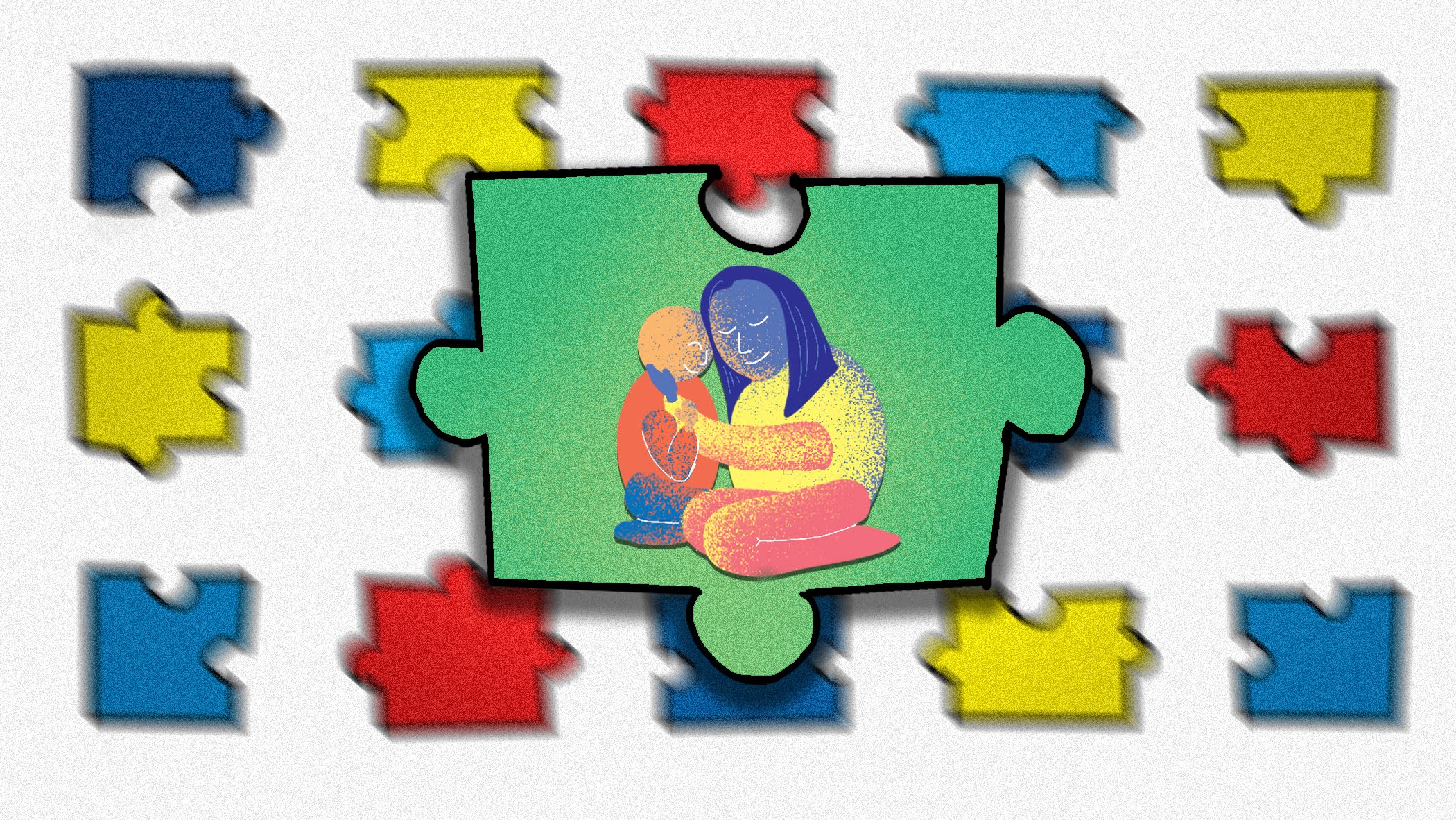
From individual therapy to special education teachers in schools, parents of children with autism in Georgia are facing a constant battle with the authorities to provide the services their children need.
Keti Nebieridze is a single mother. Her son Sandro, who turns 16 this year, was born at a time when there were no basic services for children with autism — Nebieridze recalls how, after being forced out of several kindergartens, they found one on the opposite edge of the city with a psychologist who would see the child for 15 minutes, twice a week. Though the government now provides 20 hours of therapy a month, Nebieridze still struggles with the demands of being a single parent.
‘We’ve been through a lot. My family sold everything they had to buy all the medicine [for Sandro]. I was — and still am — constantly working to provide for my son, as my ex-husband never bothered to help us.’
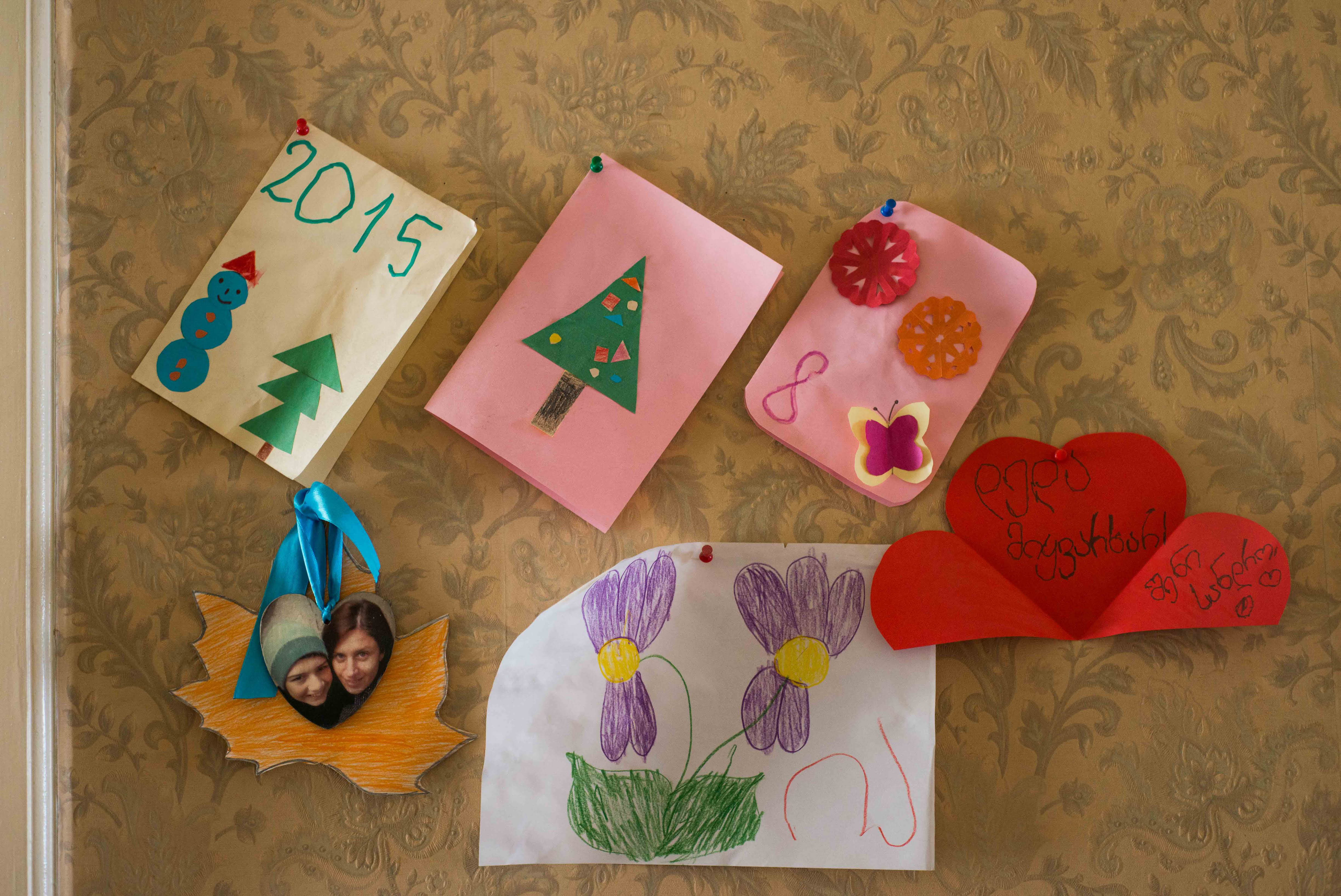
Nebieridze is a hotline operator, working day and night shifts in rotation, with every fifth day free. She does not use her work holidays or sick days, and hardly ever goes on holiday.
‘I can’t allow myself to do it. I’m constantly thinking about Sandro’s needs. I go to work even when I’m sick unless I’m in a state where I can’t get up. No one will give you sick leave just for being a mother, will they?’ She smiles sadly.
‘I lost my friends; I don’t enjoy going out with them because this time could be spent with my son — I miss him so much. I hardly see him because of the routine we have to live in’.
The only person helping Nebieridze is her mother, and she is worried about what will happen when her mother isn’t able to cope with the load anymore. Their financial situation leaves a private caretaker out of question.
On weekdays, Sandro attends an integrated class in a public school, after which he has a one-hour therapy session. Weekends are the most stressful because there is not much Sandro can occupy himself with except computer games.
When Nebieridze is free, she takes him to basketball practice — provided by another parent of a child with special needs, it is one of two free options for sports activities that are available for children with autism in Georgia.
‘I would love to add something to his life, but I have neither the time nor the money’, Nebieridze says.

The only paid therapy Sandro attends is speech therapy, which Keti’s friends are paying for. Once he turns 16, Sandro will no longer receive free therapy. She says his generation, in particular, will suffer, as they were unable to receive such therapy earlier in life.
‘It’s going to hit him hard, he loves to go to the [autism support] centre’, Nebieridze says. ‘I see how his skills have improved during the last few years and he really has started to communicate with people. We’re caught in mid-air’.
In November 2018, Health Minister Davit Sergeenko announced that he had discussed expanding the programme from 15 to 18 years with Prime Minister Mamuka Bakhtadze and Finance Minister Ivane Matchavariani. However, there has since been no follow-up.
‘He [Sandro] can’t speak very well, and I can’t tell you his thoughts about the future. But I don’t see it. All we’re trying to do is to survive the present moment’.
Nebieridze is fighting depression; unable to afford professional help, she sedates herself with pills.
‘I need to rest. But I have the whole year ahead of me now, and I can’t allow myself to’.
Nebieridze says she does not need anyone’s pity. ‘My relatives are crying about my situation to this day, and I don’t understand why. I have an amazing son, grown-up and handsome, and I’m proud of him.’

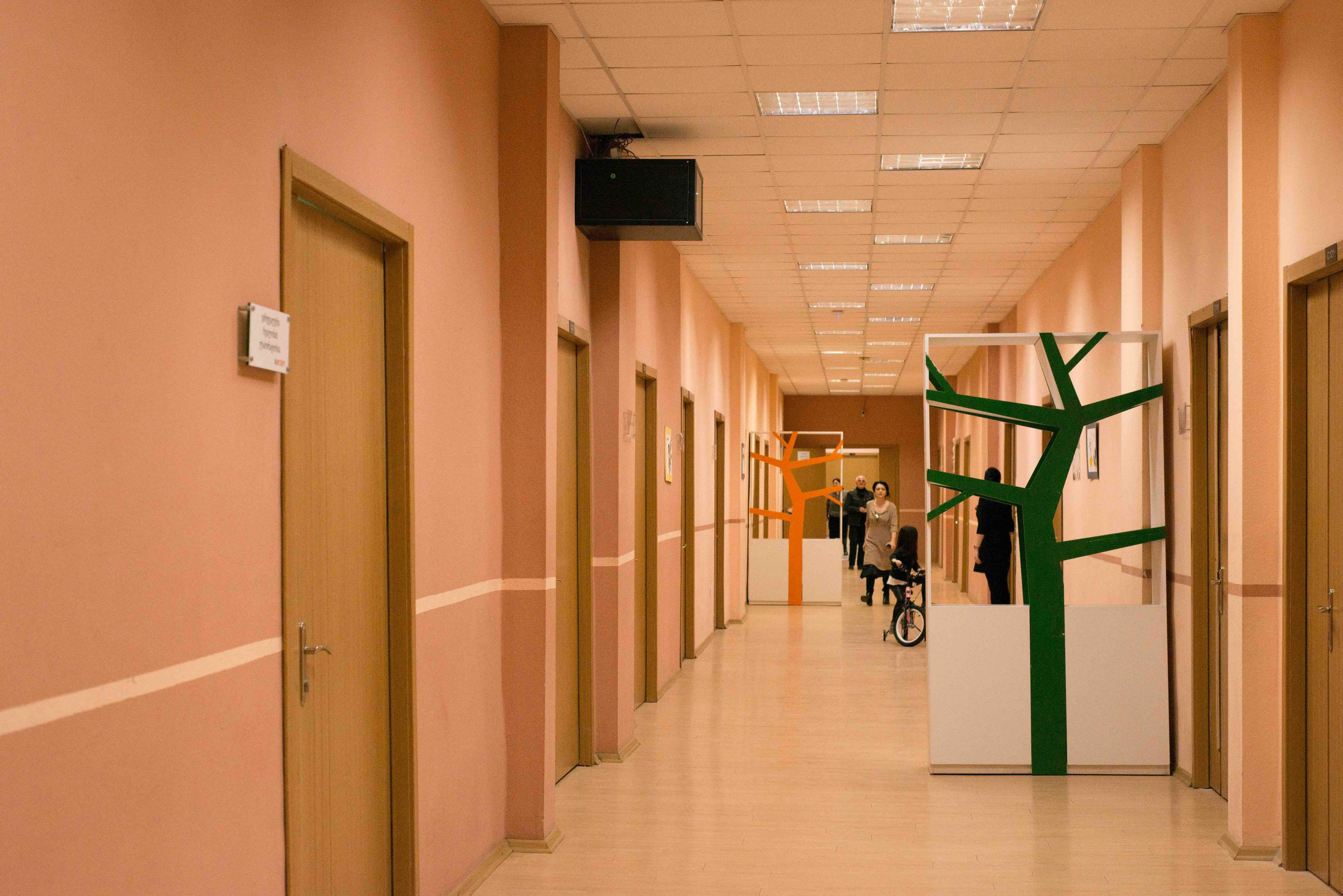
‘If you don’t push, they will forget about our existence’
Not all parents have the courage to come forward with their experiences. Sometimes they are ashamed of their situation or do not want to spoil their relationship with a school’s director. Sometimes they fear a violent backlash against their child. For Mari Korkotadze, this was not a choice she could make.
Ever since Korkotadze’s son, Data, was diagnosed with autism, her life has been a constant battle. However, Korkotadze believes that keeping quiet will only worsen the situation. ‘Often, there’s just no space for a diplomatic solution — only by raising one’s voice and involving NGOs will you get results’.
In 2015, she, along with another couple, founded Families against Discrimination, the only watchdog organisation run by parents of children in Georgia. Currently, it is mostly Korkotadze who pressures officials to increase the autism programme budget, organises rallies, and helps desperate parents who face the problems she once did.
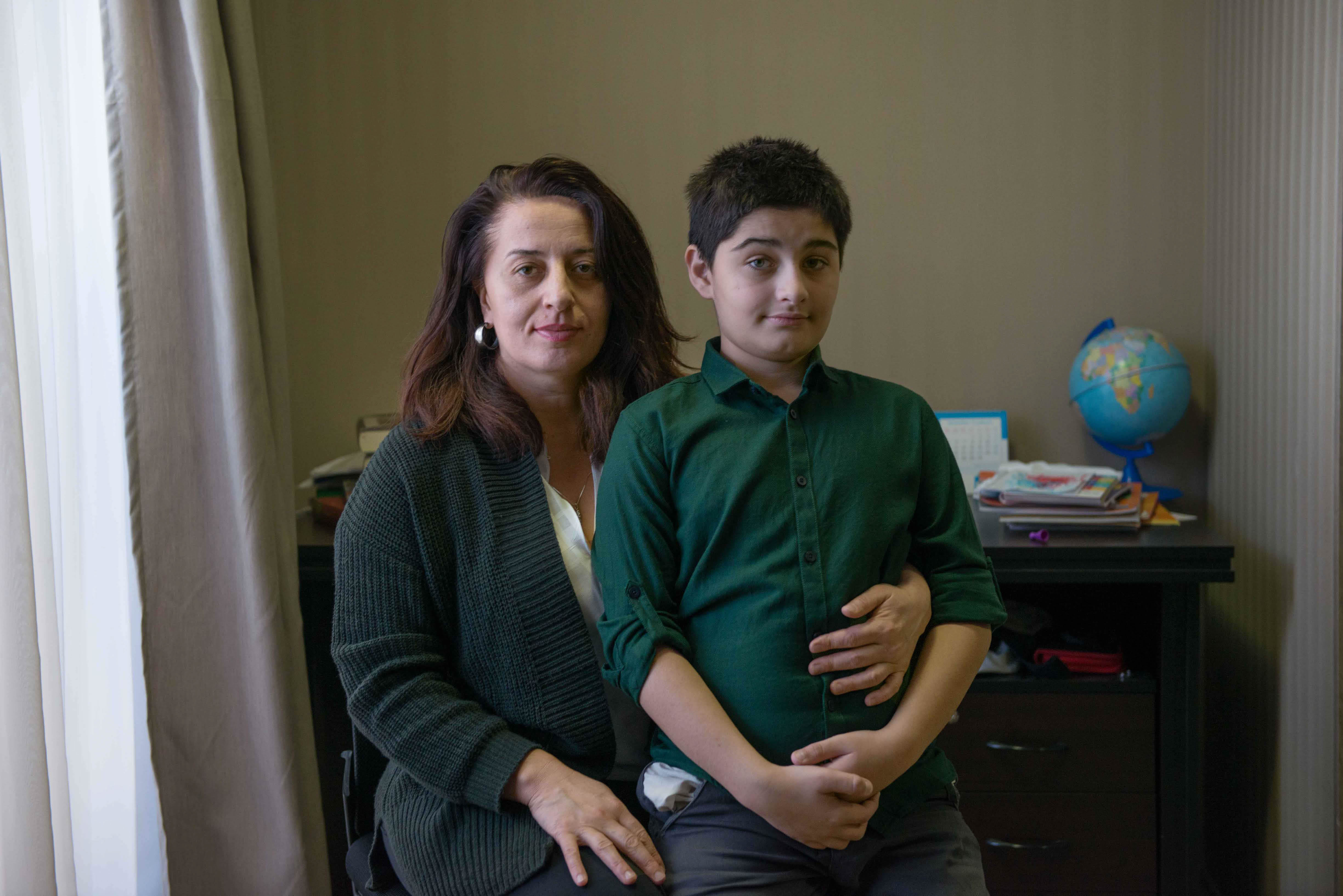
‘Unfortunately, my NGO works solely on willpower. I started to work in a completely different field and can’t attend meetings, I can’t advocate for things like a tax exemption for parents because I don’t have a relevant background in law. Whenever I need statistics, I reach out to parents on Facebook.’
One of the biggest battles parents of children with autism have had to fight was for therapy vouchers.
Currently, autism support programmes are provided by each municipality separately. The first such programme was unveiled in 2015 by Tbilisi City Hall; similar programmes in Batumi, Zugdidi, and Kutaisi, and partially in Telavi, followed.
According to the programme in Tbilisi, children between the ages of two and fifteen are entitled to 20 hours a month of Applied Behaviour Analysis. Parents receive a monthly voucher worth ₾400 ($148) to spend on the service.
But those registered in a municipality that does not offer applied behaviour analysis do not receive vouchers, meaning parents must take their child to a neighbouring region and pay for both the therapy and any transportation costs that arise.
According to Korkotadze, after the programme was introduced, the parents of 36 children attempted to register in the capital. However, only those registered before 1 July 2015 were accepted.
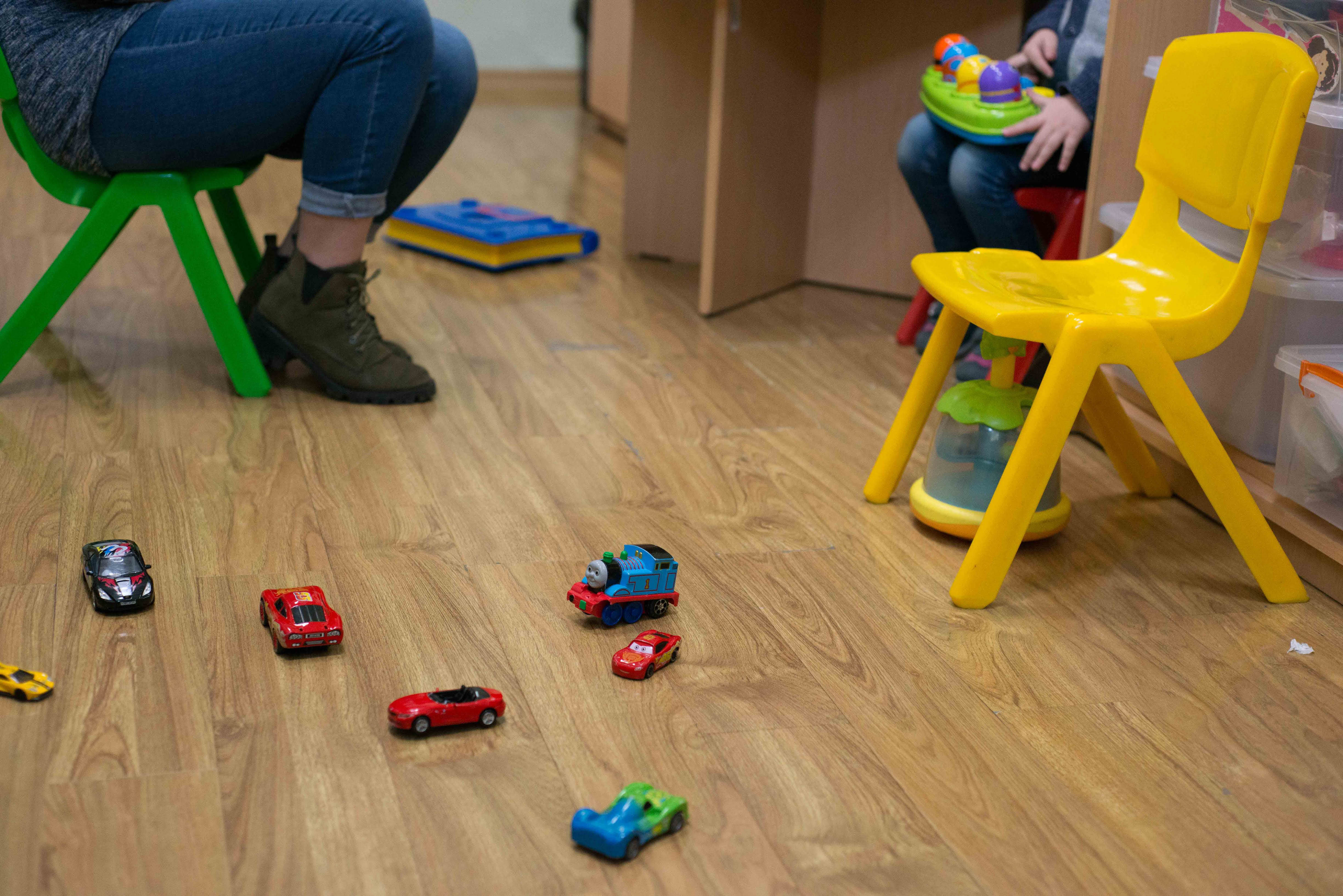
One year later, after a series of rallies, hunger strikes, and meetings with the head of the municipal department of Healthcare and Social Services, Gela Chiviashvili, the parents managed to change the requirements.
During the final meeting, it was agreed that children who were not born and registered in Tbilisi before 2015 would have to wait one year to receive the benefits of the programme. However, the municipality later changed the period to three years without notifying the parents.
‘At that point, some children had weeks left before the start of their therapy. And now they have to wait two more years and lose more precious time’.
Korkotadze has been pressuring the city hall to increase the budget for the autism programme; she convinced them twice before — once through protests and once with help from opposition parties the United National Movement (UNM) and European Georgia, who voiced her opinion during a city council meeting in 2019. Following the meeting, the budget was increased by ₾445,000 ($165,000). However, Korkotadze thinks there should be an additional reserve that would provide for additional children.
‘If you don’t push every year, they will forget about our existence’, she says.
Loopholes in the education system
According to Korkotadze, preschool children with autism who have just begun therapy are often aggressive or hyperactive. Instead of working with the children, she says, school administrations prefer to redirect them to other kindergartens.
‘These children are entitled to a personal assistant, it’s the law. Sometimes it’s the directors not knowing about the laws; but more often, they’re probing parents, and if they see the parents are not aware of their child’s rights, directors do everything to expel these children’, Korkotadze says.
Personal assistants help children with special needs in the learning process, acting as mediators between the student and the academic environment. The Ministry of Education increased funding for schools to ₾500 ($185) per special needs student for the 2018-2019 academic year, to cover these expenses. However, the salaries for personal assistants are not fixed, and it is schools that decide how to spend this money.
According to Korkotadze, this is a major loophole that some schools are successfully exploiting. She recalls one public school in Tbilisi in which a parent looked up the vacancy for a personal assistant published by the school after their child applied for one. ‘The salary was ₾100 ($37). Even a non-professional won’t work for this money, it’s humiliating’.
Apart from personal assistants, there are special education teachers, whose function is to adapt the learning programme for the student. Tamar Gagoshidze, a neuropsychologist and head of Tbilisi State University’s Faculty of Psychology and Educational Sciences, says that while not every child requires a personal assistant, every special needs student needs a special education teacher.
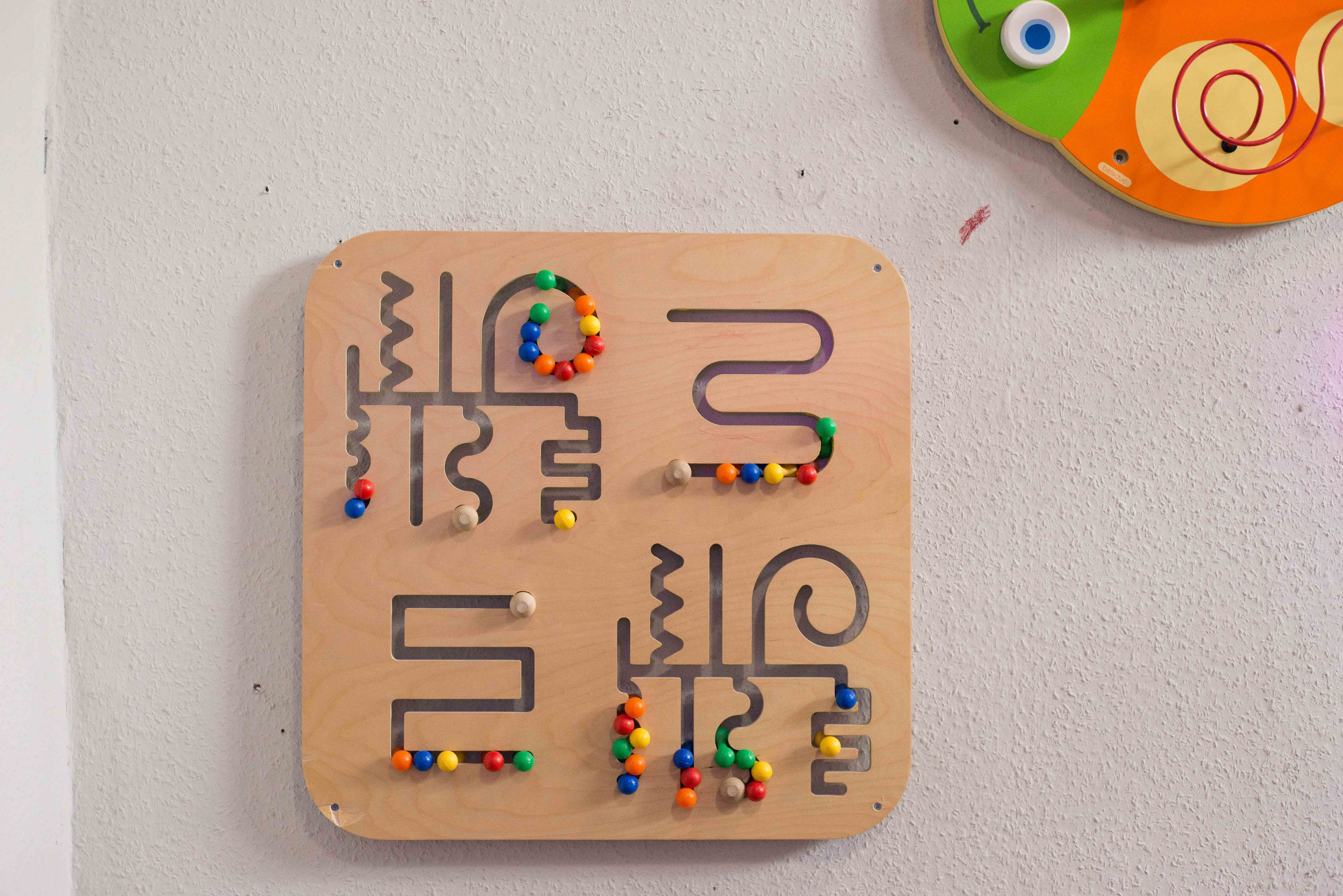
Special education teachers, however, are more expensive. In 2018, they received a pay raise, with a minimum salary of ₾400 ($150). They were also granted the status of teacher; previously they belonged to the administrative staff.
‘It looks like they’re improving things, but at the same time, the ministry created a personal assistant position with undefined status and income. Now if you ask for a teacher, you might get the answer that what you really need is an assistant, who won’t come to work for the low payment’, Korkotadze says.
Lack of qualifications
According to Gagoshidze, the biggest issue with the programme is diversity.
‘Not every child needs these 20 hours, and not every child needs so many hours of [Applied Behaviour Analysis] therapy. There’s a room for diversifying these services’.
The service should include psychological support for parents too, Gagoshidze says.

‘Even one hour a week as a part of a municipality programme would be enough to aid the stress, anxiety, depression, and above all, PTSD that parents face. The emotional state of a parent has a direct impact on the child — this is especially hard on children with disabilities, who have strong bonds with their parents’.
Another problem she highlights is the quality of services. According to Gagoshidze, even if parents have a voucher, they may not get a place at a centre because the centres do not want to increase the number of children at the expense of quality.
‘For a child with autism, it’s better to wait than to receive bad service, but on the other hand, time works against these children too’.
Both of these issues are connected to the lack of qualified specialists, she says, which is a direct result of the absence of relevant academic programmes. Currently, there are no BA or MA programmes related to the required therapies’, Gagoshidze says.

‘When the programme was started, these children were little, and there was a high demand for preschool therapies. But teenagers and young adults have different needs, and there are no people to meet these demands. For teenagers that made progress, it would be harmful to drop therapy now’.
As statistics on the number of people with autism rise across the world, Georgia being no exception, Nebieridze stresses that new problems are around the corner: ‘What I need is support. I need the government to understand that today, my son is 15, and tomorrow it will be someone else’s [child]. They have to find a solution for these children.’


